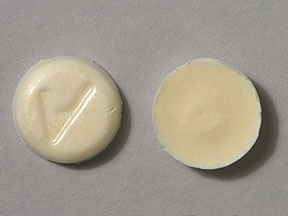Zelapar Dosage
Generic name: SELEGILINE HYDROCHLORIDE 1.25mg
Dosage form: orally disintegrating tablet
Drug classes: Dopaminergic antiparkinsonism agents, Monoamine oxidase inhibitors
Medically reviewed by Drugs.com. Last updated on May 22, 2024.
General Dosage Recommendations
Initiate treatment with 1.25 mg given once a day for at least 6 weeks. After 6 weeks, the dose may be increased to 2.5 mg given once a day if a desired benefit has not been achieved and the patient is tolerating ZELAPAR. There is no evidence that doses greater than 2.5 mg a day provide additional benefit, and they should ordinarily be avoided because of the potential increased risk of adverse events.
Take ZELAPAR in the morning before breakfast and without liquid. Patients should avoid ingesting food or liquids for 5 minutes before and after taking ZELAPAR.
Patients should not attempt to push ZELAPAR through the foil backing. Patients should PEEL BACK the backing of one or two blisters (as prescribed) with dry hands, and GENTLY remove the tablet(s). Patients should IMMEDIATELY place the ZELAPAR tablet(s) on top of the tongue where it will disintegrate in seconds.
Patients with Hepatic Impairment
In patients with mild to moderate hepatic disease (Child-Pugh score 5 to 9), the daily dose of ZELAPAR should be reduced (from 2.5 to 1.25 mg daily), depending on the clinical response. ZELAPAR is not recommended in patients with severe hepatic impairment (Child-Pugh score greater than 9) [see Use in Specific Populations (8.6) and Clinical Pharmacology (12.3)].
Patients with Renal Impairment
No dose adjustment of ZELAPAR is required in patients with mild to moderate renal impairment (creatinine clearance [CLcr] 30 to 89 mL/min). The maintenance dose of ZELAPAR (1.25 mg or 2.5 mg) is determined by the individual clinical response. ZELAPAR is not recommended in patients with severe renal impairment and patients with end-stage renal disease [ESRD] (creatinine clearance [CLcr] <30 mL/min) [see Use in Specific Populations (8.7) and Clinical Pharmacology (12.3)].
More about Zelapar (selegiline)
- Check interactions
- Compare alternatives
- Pricing & coupons
- Reviews (3)
- Drug images
- Side effects
- During pregnancy
- FDA approval history
- Drug class: dopaminergic antiparkinsonism agents
- Breastfeeding
- En español
Patient resources
Other brands
Professional resources
Other brands
Related treatment guides
Further information
Always consult your healthcare provider to ensure the information displayed on this page applies to your personal circumstances.

